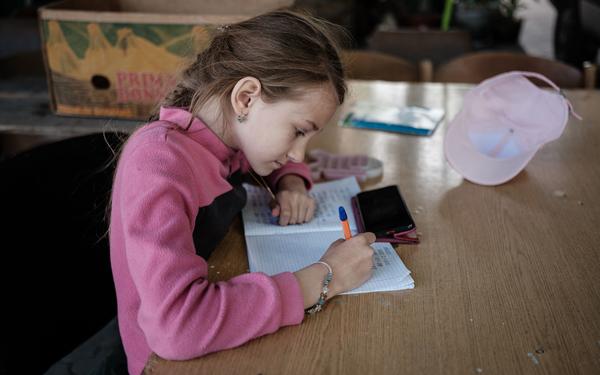Supporting teachers to tackle early school leaving in Romania
Cambridge Partnership for Education, in collaboration with our colleagues at Cambridge University’s Faculty of Education, provided a pilot teacher training programme to tackle early school leaving in Romania.

Quick read
- The Romanian Ministry of Education committed to reducing the number of children who leave school before attaining lower secondary education. The ministry worked with the World Bank in 2018-19 to develop an Early Warning Mechanism to address this problem
- To support this project, Cambridge developed and delivered online training and coaching activities to school staff in 11 schools in 10 selected counties in Romania.
- Like all our projects, this was collaborative, drawing on expertise from Cambridge University’s Faculty of Education and specialists from the University of Bucharest, alongside our partners at the World Bank and Romanian Ministry of Education.
Through this short-term pilot programme, we empowered teachers to try out new approaches, supported by positive feedback and encouragement to take appropriate risks.
The challenge
Students who leave school early often face long-term unemployment and then may be dependent on social welfare.
As part of a commitment to provide education for all, and prioritise personal and social development, the Romanian Ministry of Education (the Ministry) set about reducing the number of early leavers from education.
In 2018-19, the Ministry worked with the World Bank to develop an Early Warning Mechanism to address this problem. They intended to develop the teaching workforce, providing support activities such as remedial classes, tutoring, and the development of socio-emotional skills targeting students from disadvantaged groups.
To support this drive to reduce early school leaving, the Ministry engaged us to provide a pilot teacher training programme. At Cambridge Partnership for Education, we have a long history of providing professional development opportunities to school leaders and teachers all over the world. As part of the University of Cambridge we were able to involve the Faculty of Education, and - like with all our education reform projects - work closely in collaboration with other global and local partners; in this case, the Ministry, World Bank and specialists from the University of Bucharest.
We agreed to carry out the following tasks:
- Develop and implement a coaching plan for school staff in 11 pilot schools, in close coordination with the World Bank task team.
- Provide certificates of completion for school staff benefiting from the training and coaching activities.
- Produce a report describing the training and coaching activities carried out in the 11 pilot schools.
Marc Neesam, Head of Professional Development Solutions at Cambridge Partnership for Education, says:
“The project was about working with practising teachers at the forefront of education and supporting them in changing their teaching, reflecting on it and then filtering that up into the wider school community”.
How we helped
We started by finding out about the teachers in the 11 schools taking part in the pilot programme. We wanted to understand their challenges and development priorities.
We used this research to develop appropriate professional development to support the changes in pedagogical practices needed, as well as introduce the teachers to classroom evaluation tools. This was all provided in the form of webinars due to the Covid-19 pandemic.
We also gave teachers research tools to measure students’ prior attainment, what motivates them and their attitudes to learning. We asked teachers to plan a short sequence of lessons including a new approach using active teaching and assessment for learning approaches which were supported by the webinars.
Teachers could also contact the Romania based facilitators and Cambridge team during the intervention for mentor support.
We provided a research structure with scaffolds to aid thinking. This enabled the teachers to take risks to try out something new in their classrooms. For example, we encouraged teachers to think about why the approaches they used may or may not have been effective; and to consider how they might improve even further in the next stages of teaching the same students.
The final stage was a conference to reflect on the outcomes. All 51 teachers who had participated in the webinars registered and took part in the conference.
We awarded teachers with a certificate of participation on completion of the project.
Outcomes
This was a rapid, targeted intervention and provides a positive example of testing and trialling solutions with a small cohort of teachers before scaling up.
The teachers, working on this alongside their teaching commitments, rose to the challenge and their achievements were impressive. They demonstrated a willingness to participate in pedagogical development and a capacity to learn and engage with support. Marc says:
“This project is an example of how we at Cambridge Partnership for Education, working with colleagues at the Cambridge University's Faculty of Education, and collaborating with external partners can design and deliver a custom programme that effects sustainable change.”
If you’re working to improve the quality of your country’s education system, then please contact us to find out how we can help you achieve your goals.




